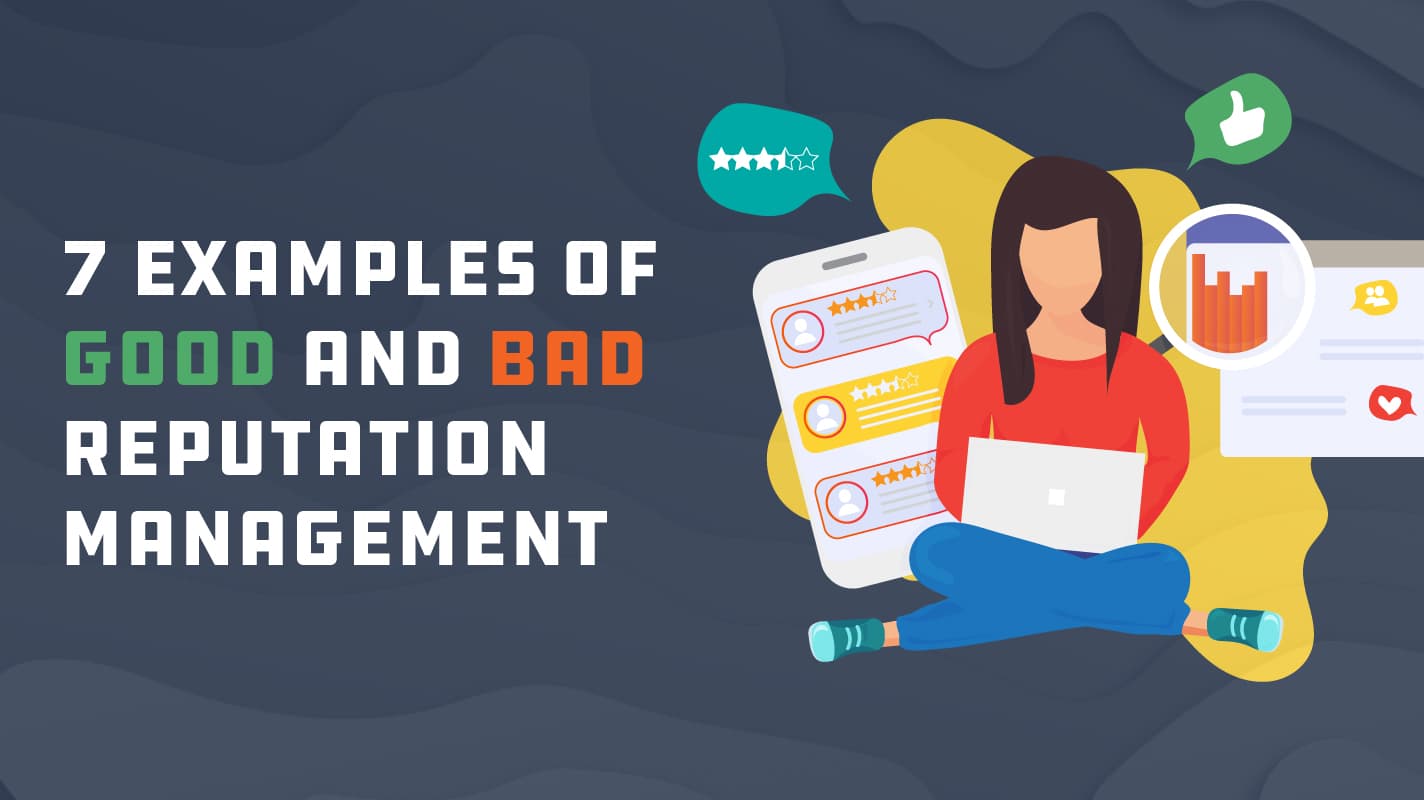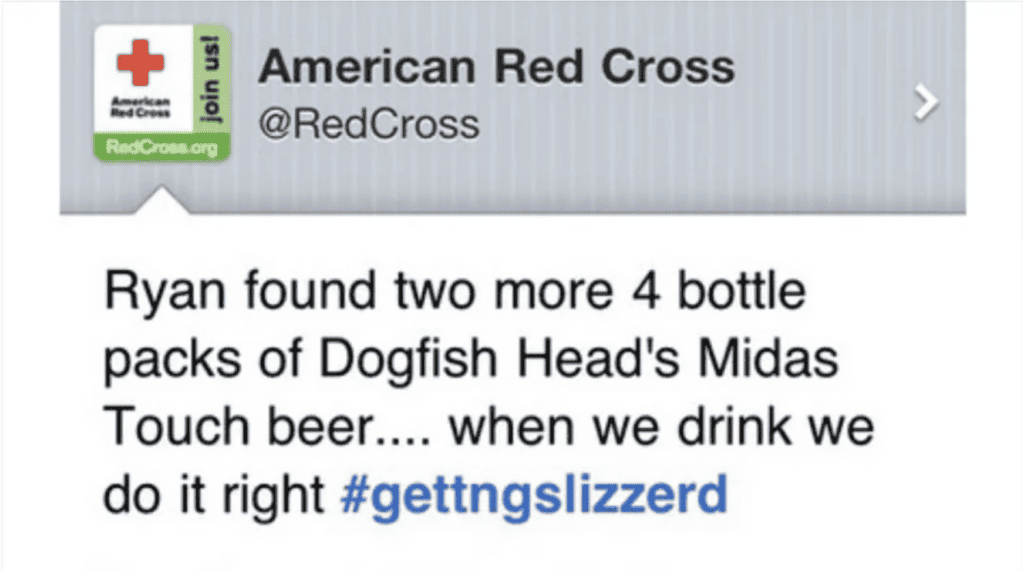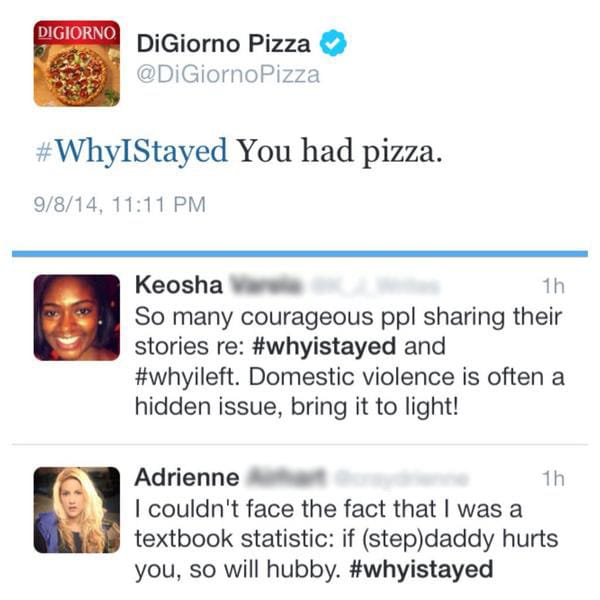Like all things in life, incoming engagements from your audiences on social media can have a few different sides… the good, the bad, and the ugly. Today, we’re here to discuss how to address each side while keeping your brand’s integrity in mind with reputation management. That’s right, including the ugly!
In the age of social media, what people say about you can spread like wildfire, potentially reaching millions or, at the very least, catching the attention of your next potential customer. That’s why keeping a pulse on your social media reputation is crucial.
No longer just reserved for restaurants, the influence of review sites like Yelp extends far and wide. It’s not just eateries getting the spotlight; it’s everyone from your friendly hairdresser to the local commercial construction company.
Ever wondered where your customers sing your praises or air their thoughts? The spectrum is vast, spanning from your Facebook pages to Google reviews, Yelp, and even your own website.
Your digital brand reputation is a patchwork quilt of customer experiences — let’s ensure it’s a masterpiece!
Building Your Reputation Management Strategy
Now, when responding to social media engagements, it’s important to remember that it isn’t always about you. Brand reputation management isn’t about dictating the story; it’s about tuning in to what customers are saying, drawing insights from their feedback, and responding in a manner that fosters trust in your brand.
Importance of Reputation Management
- Values in Action: Your social media reputation is like a window into your brand’s character. It’s not just about products or services; it’s about how you handle customer needs.
- Building Trustworthy Connections: Crafting a positive online community is about building customer trust and paving the way for stronger, longer-lasting connections.
- Stand Out Among Competitors: Imagine your brand as the neon sign in a bustling city. A good reputation attracts new customers and ensures your brand stands out amidst the competition.
- Cash Flow Impact: Negative reviews can quickly spread, ultimately affecting your business’ revenue. On the flip side, good reviews can help attract new customers and retain existing ones.
- Talent Magnetism: Want to assemble a dream team? A positive online reputation is your secret sauce. It’s not just about jobs; it’s about creating a workplace that attracts and retains the best talent.
Reputation Management Do’s & Dont’s
Do
Regularly check your social media channels for mentions of your brand, product, or service.
Do
Respond promptly, empathetically, and transparently to customer feedback and complaints. Being transparent and authentic helps build trust with audiences.
Do
Move questions or concerns off of social media to avoid back-and-forth.
Do
Encourage customers to share positive reviews, showcase positive reviews on your social media, and actively engage with customers to foster brand loyalty.
Don’t
Ignore negative feedback or complaints from customers on social media.
Don’t
Buy fake followers, likes, or reviews; it can harm your reputation.
Don’t
Rely on automated responses or generic replies to customer feedback.
Don’t
Overreact, respond defensively to negative feedback, or get into online arguments.
Don’t
Let incoming inbox messages, comments, or reviews sit unanswered for too long. This can make your customers feel unimportant or unheard.
Examples Of Good, Bad, and Ugly Reputation Management
The Good - Nike
As large and popular of a company as Nike is, they still receive negative comments from customers online. The company ensures that all complaints are handled in an efficient, personal, and professional manner.
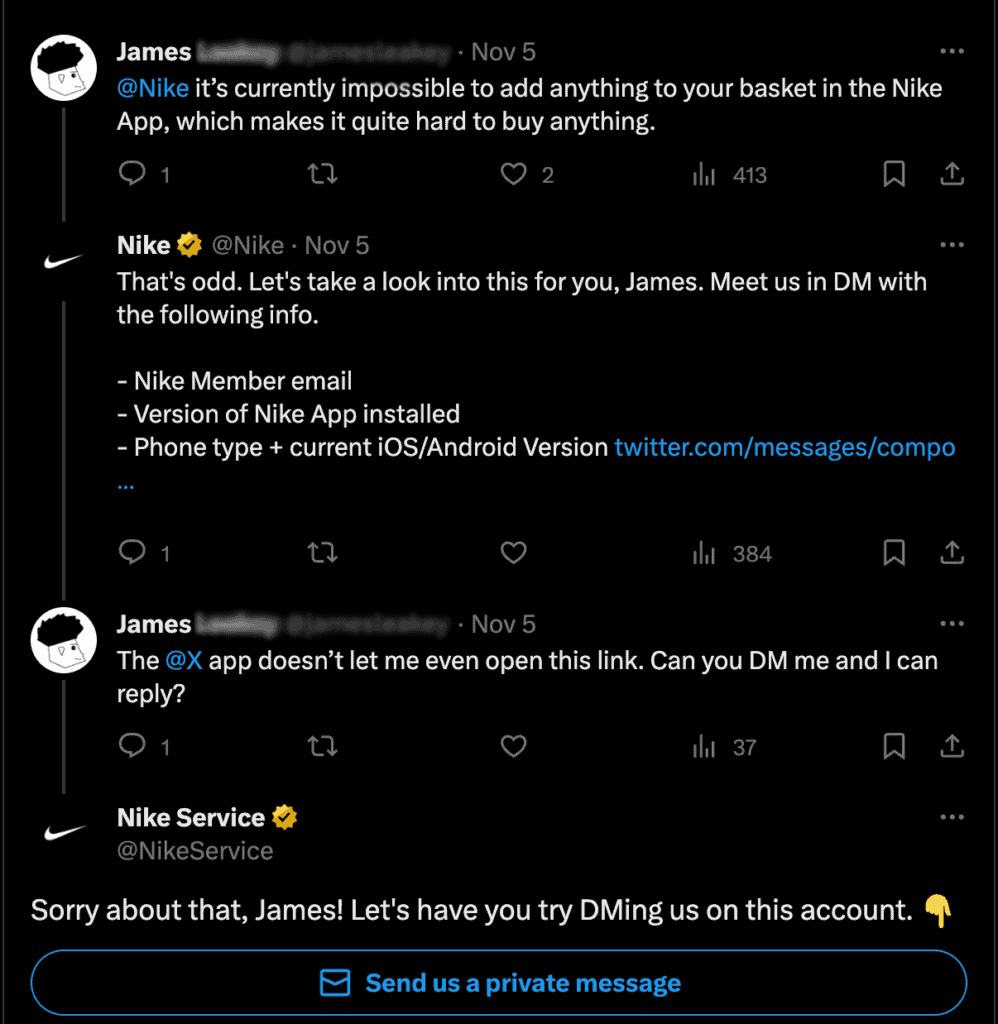
The Good - Ryanair
Ryanair takes a fun, sarcastic approach to its online reputation. Its TikTok videos often go viral with hundreds of thousands, if not millions, of views. They aim to create funny and stimulating content with which their audience can resonate and engage. Ryanair’s TikTok success is due to its understanding that authenticity is what reigns on social media and focuses on creating humanized content.
@ryanair We sell seats, not windows 💅 #11a #ryanair ♬ nhạc nền - Funny-🤣
The Good - Adobe
Adobe has its own dedicated Twitter account for handling customer support. The brand leverages social listening to help designers who run into technical issues, have questions, or need extra support. Plus, the brand responds in a timely manner and immediately jumps into learning more to solve the solution alongside their customer.
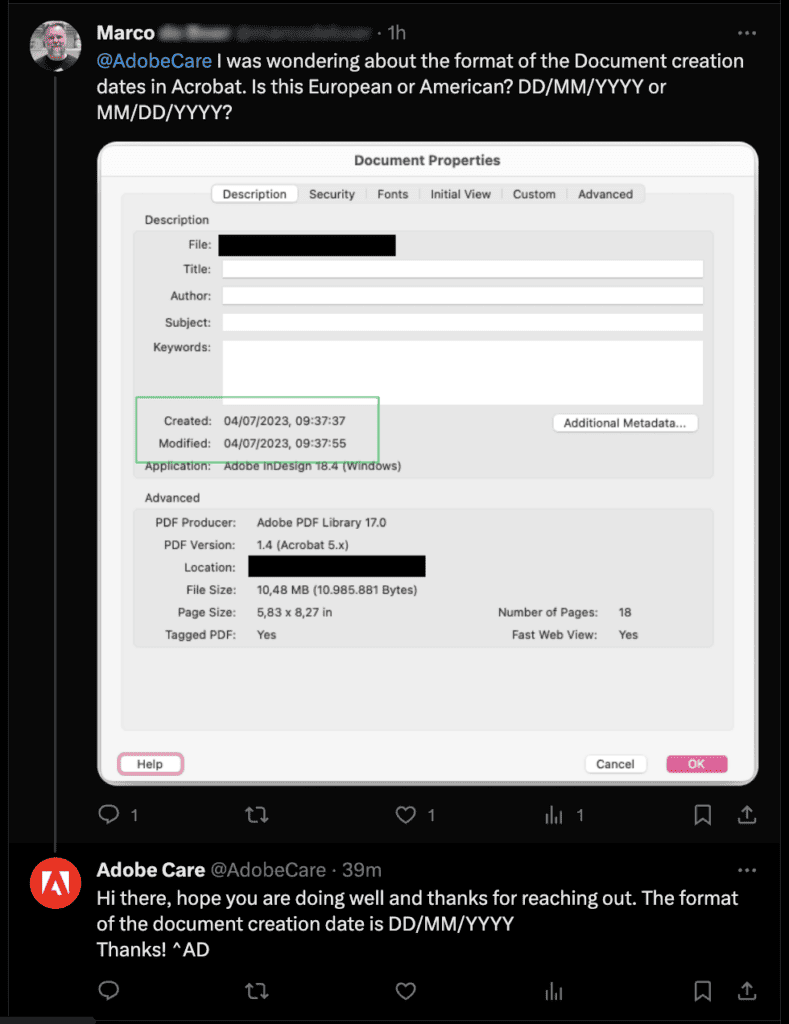
The Good - Pixar
While Pixar isn’t directly mentioned in this post, they still sought out and engaged with the post considering it highlighted their brand and product, going the extra mile to reach potential customers. They approached their response in a fun and trendy manner, which appeals to their target audience.

The Bad - Bank of America
While Bank of America showcases that human employees are responding to comments, it is evident that their team follows a script. Furthermore, that script doesn’t seem to be personable or offer the most efficient solution to the customer’s issue.
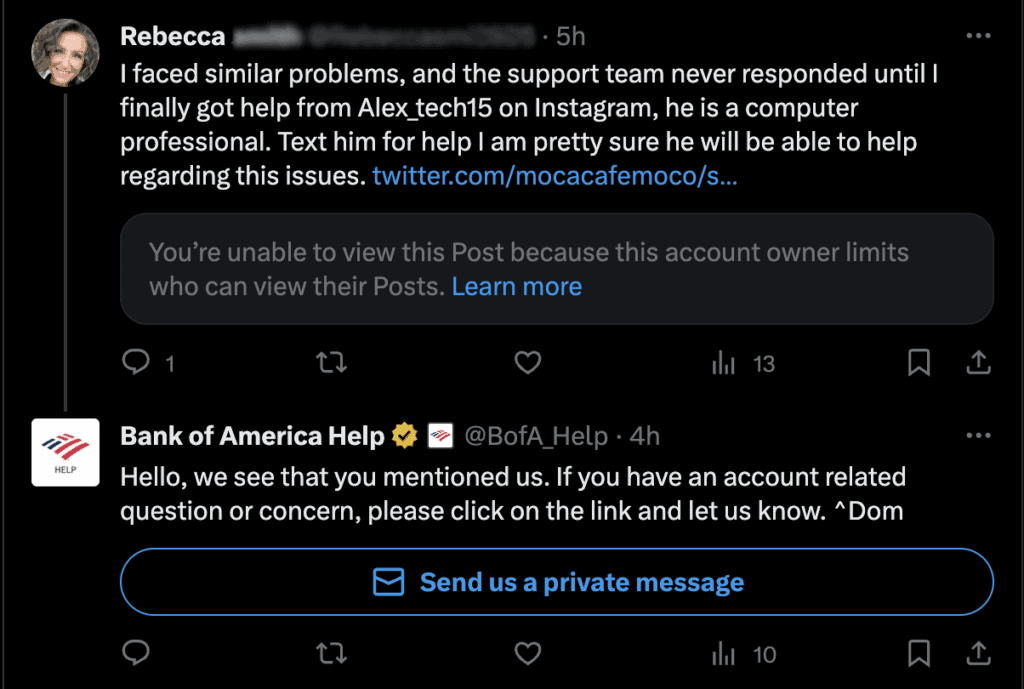
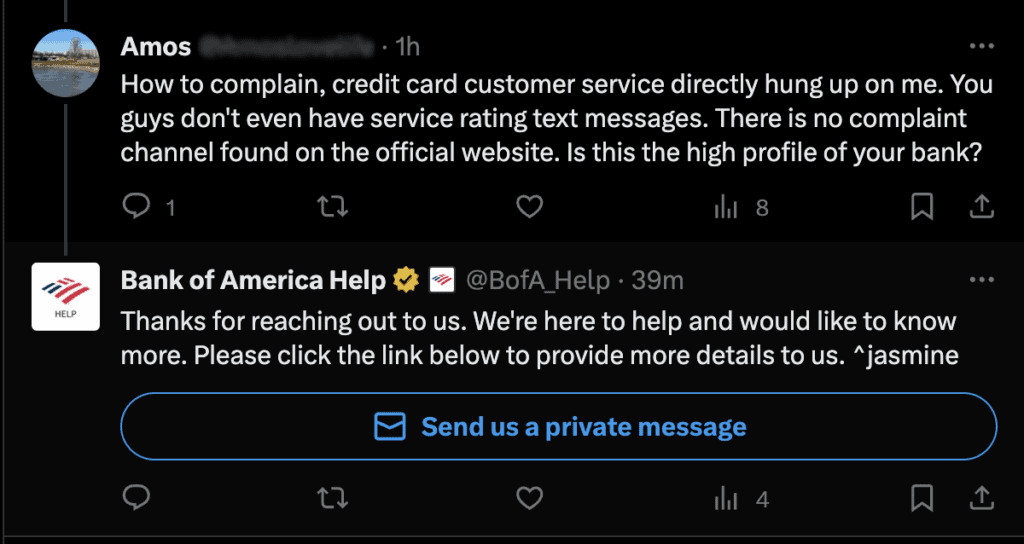
The bad - American Red Cross
Mistakenly sharing a personal status on a corporate account is a common mistake, ranging from harmless to less forgivable, depending on the content. A notable instance involves an employee accidentally posting her evening plans from the American Red Cross‘s Twitter account.
The UGLY - DiGiorno Pizza
What can we learn from this particular example? When your organization engages in trending discussions, ensuring that your involvement holds genuine value is crucial. Instead of merely using a trending topic to promote your products or services, focus on contributing meaningfully to the conversation. Prioritize adding value, support, or insights that align with the context rather than solely aiming to capitalize on the trend for promotional purposes.
Your brand’s reputation matters.
Rather than treating it as something beyond your control, you should take steps to secure and boost your brand’s reputation sooner rather than later. At Seventh Scout, we specialize in crafting reputation management plans that resonate with the essence of your brand. Let us be your strategic partners in navigating the dynamic landscape of social media and fostering a positive online image. Reach out today, and let’s build the exceptional reputation your brand deserves.
